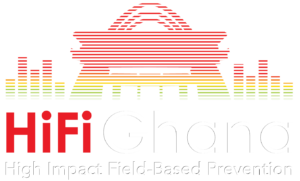Background. HIV prevalence among men with have sex with men (MSM) in Ghana is at least eight times higher than that of the general population (2%). MSM in Ghana face high levels of stigma due to HIV status (actual or perceived), same-sex behavior, and gender non-conformity. These stigmas are documented barriers to HIV prevention and treatment. In our preliminary work in Ghana (N=137), one-third of MSM had never been tested for HIV. We propose a randomized controlled trial to evaluate the feasibility, acceptability and estimate effect size of a multi-component, multi-level (organizational, interpersonal, and intrapersonal-level) intersectional stigma-reduction intervention to increase HIV testing frequency among MSM in Ghana where HIV, same-sex behavior and gender non-conformity are highly stigmatized. To date, stigma-reduction interventions in Ghana have focused on uni-level targets (e.g., health care facilities (HCFs)) and addressed one type of stigma (e.g., HIV), without engaging the intersectional character of the multiple stigmas that MSM encounter.
AIMS: Our specific aims are:
- To evaluate the feasibility and acceptability of a novel multi-component, multi-level intervention to address intersectional stigma and (2) to estimate effect size of the intervention for scale up to a definitive efficacy trial.
Activities. We combine three theory-based interventions that were previously implemented separately in Ghana for reducing stigma at HCF-level, increasing HIV testing at the peer group-level, and increasing peer social support at the individual-level. The ADAPT-ITT framework guides our approach to enhancing the interventions’ content on intersectional stigma. To achieve these aims have conducted a systematic adaptation to refine the individually developed HCF, peer- and individual-level interventions to produce a comprehensive multi-level intersectional stigma reduction intervention. This consist of focus groups and in-depth interviews with HCF staff and MSM to sharpen content on drivers and manifestations of HIV, same-sex and gender non-conforming stigmas within HCFs and peer groups and how these intersecting stigmas undermine HIV testing. This information was used to refine the content of the interventions which was reviewed by a workgroup of HCF and Ghanaian MSM.
- Ran a randomized control trial to test the efficacy of the interventions in reducing intersectional stigma and improve HIV testing in Ghana.
Activities. The trial involves 8 HCFs, matched on HCF staff size. Matched pairs were randomized to have an intervention and a control arm. Before assignment to HCFs, 216 MSM, were recruited through Starfish Sampling (combined time-location and peer-referral sampling), and randomized to receive the intervention or usual care. Each arm of MSM have members randomized to one of the four clinics per city and asked to stay in the assigned community-clinic pipeline. Using the RCT design, we will formally test the following outcomes: HIV testing at 3 and 6 months, acceptability, and feasibility. We will fit multi-level regression models for the predictor variables at the HCF, peer and individual levels.
Publications: Pending
Products: 1) Three intervention manuals; Health Care Facility intersectional stigma reduction intervention 2) Nyansapo (adapted Many Men Many Voices) to address intersectional stigma, reduce HIV risk behaviors and increase HIV testing among MSM and 3)
Funding organization: National Institute of Nursing Research (RO1)
